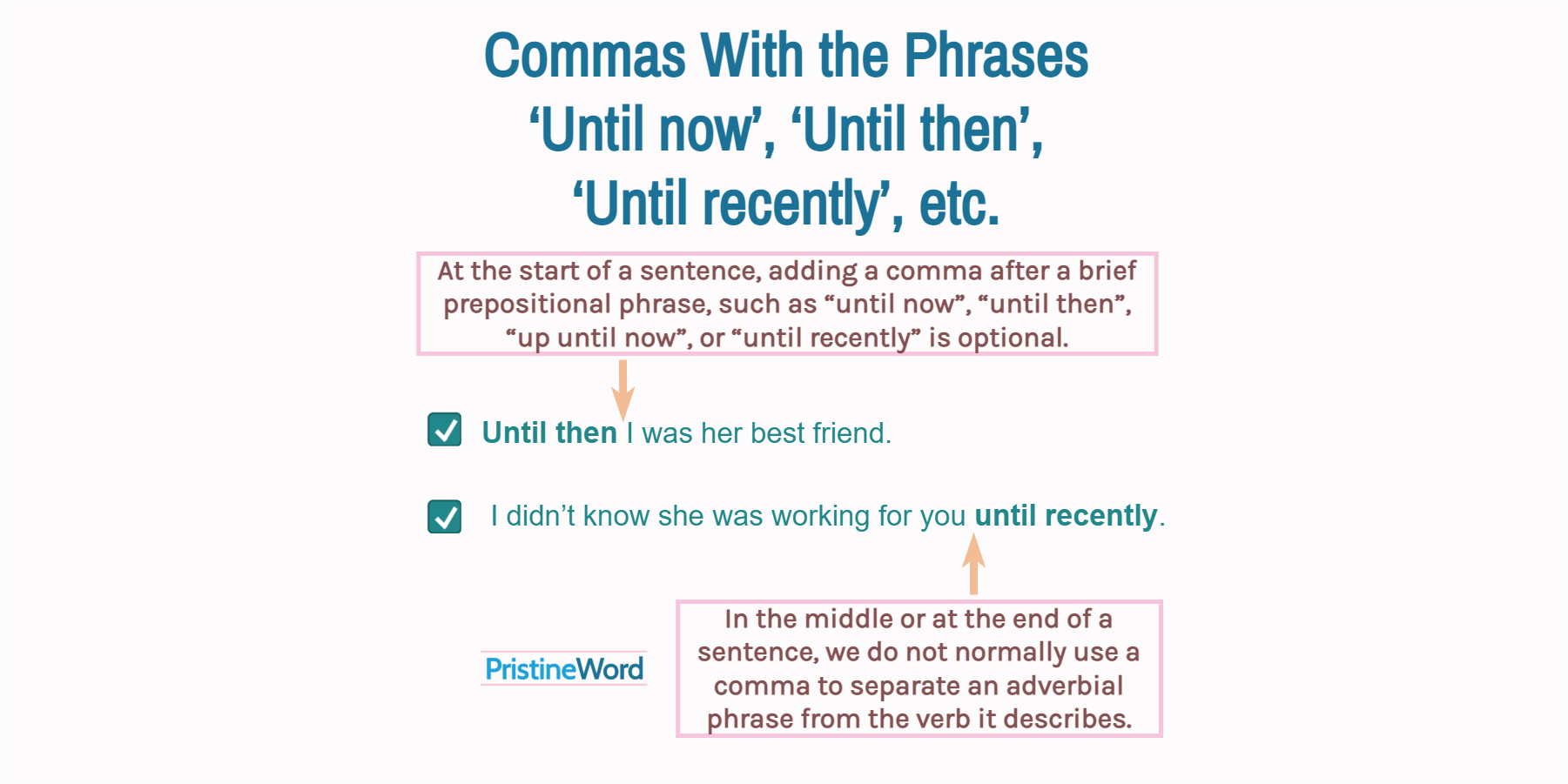At the start of a sentence, adding a comma after a brief prepositional phrase, such as “until now”, “until then”, “up until now”, or “until recently” is usually optional.
At the start of a sentence, adding a comma after a brief prepositional phrase, such as “until now”, “until then”, “up until now”, or “until recently” is usually optional.
Until then I had a good relationship with Olivia.
Until now, nobody has mentioned anything about it.
In the middle or at the end of a sentence, we do not normally use a comma to separate an adverbial phrase from the verb it describes.
Considerable progress has been made up until now.
Follow the same comma strategy when using similar expressions, like “until the end of time”, “until last week”, “until the end of the month”, etc.
Contents
1. Starting a Sentence With ‘Until then’, ‘Until now’, ‘Until recently’, etc.
“Until then”, “until now”, “until recently”, "up until now", etc. are prepositional phrases with an adverbial function.
We had never considered that perspective until now.
They can be used at the beginning of a sentence to introduce a new statement. The comma after these introductory phrases is optional.
Until then we didn’t know how to deal with the problem.
But always use a comma to avoid confusion or clarify complicated sentences.
Until recently, considerable progress had been achieved by our team in enhancing human rights.
Follow the same strategy with similar prepositional phrases, such as “until tomorrow”, “until last Friday”, “until the last minute”, “until the end of time”, etc.
Until last June he was the president of the commission.
Be aware that the longer the introductory phrase, the more likely you will use a comma after it.
Until the end of time, I will try to help him because he is my son.
You can also use “until” to introduce a clause, instead of a phrase. In such a situation, add a comma after the whole clause introduced by "until"—remember that clauses, unlike phrases, always have a subject and verb.
Until Rebecca was eight years old, she was not allowed to play video games.
2. In the middle or at the End of a sentence
In the middle or at the end of a sentence, we do not typically separate adverbial phrases, such as “until now”, “until then”, “until recently”, or "up until now" from the verb it describes.
I didn’t know they existed until now.
There are particular sentence structures, however, where commas may be necessary. For example, use commas to include an explanatory note, emphasize, add a series of coordinate phrases, or avoid confusion.
I've been worrying about everything, until recently, but now I feel better.
Look at this example:
I didn’t know she was working for you, until recently.
I didn’t know she was working for you until recently.
Without the comma, the reader is liable to think that "she was working for you until recently" rather than "I didn't know until recently that he was working with you."

